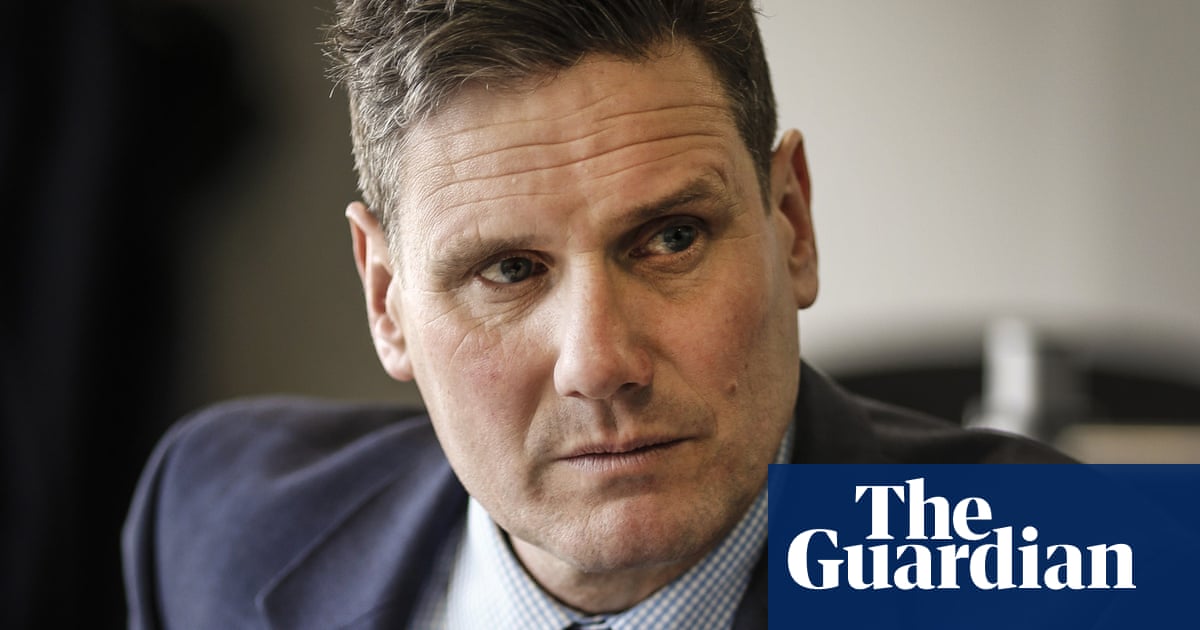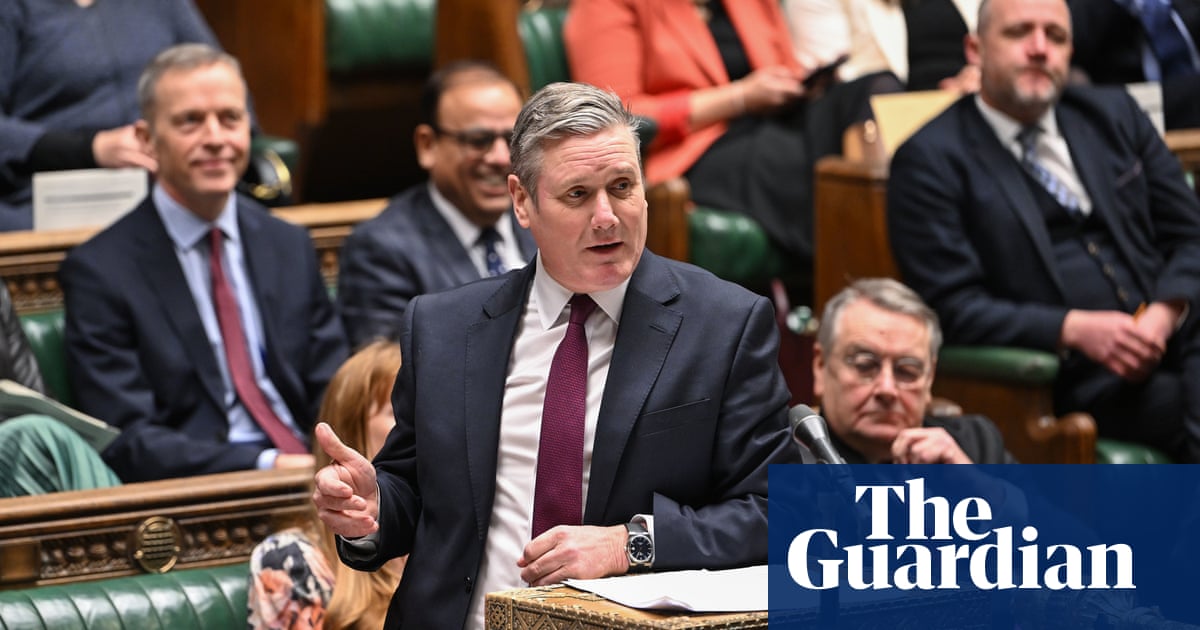
Keir Starmer was not an obvious choice to lead the Crown Prosecution Service.
As a human rights lawyer, he had no record of prosecuting criminal cases. He was known as a firebrand leftwinger who had defended Greenpeace activists in their libel case against McDonald’s for free after they were denied legal aid. In the 1980s, he helped set up the radical leftwing journal Socialist Alternatives.
“When he first came in 2008, we were concerned he would be very anti-police,” said Nazir Afzal, who was a CPS prosecutor at the time. “His background was pro bono work on the McDonald’s case and human rights law.”
However, over the course of the next few years Starmer transformed his reputation from that of a radical lawyer to that of a moderate and cautious administrator.
“He has learned,” said one person who worked closely with him at the CPS. “When I first knew him he had more fixed opinions about things. I think he was more definite that he knew what was right and wrong and they belonged to particular political stances.
“During the time I knew him I saw that change. He became all about wanting to weigh up the evidence and think things through carefully before he made a decision.”
A spokesperson for the Labour leader said he was proud of his record at the CPS. “He oversaw the first ever prosecution of al-Qaida terrorists, the jailing of the airline liquid bomb plotters and racist murderers of Stephen Lawrence,” they said.
“With his leadership, charge and conviction rates for sexual offences rose, victims were better supported, and the CPS was positively reformed.”
Nevertheless, several CPS decisions under his leadership are likely to be picked apart by opponents during the next general election campaign.
Not prosecuting Jimmy Savile in 2009 is high on that list, as is the CPS’s decision that year to drop a case into the Rochdale child sexual abuse ring.
Like the Savile case, this did not prove to be a problem for Starmer until years later, when the Times began writing about the allegations.
At this point, Afzal remembers Starmer being willing to take difficult decisions to make sure a new case could get off the ground. “The problem was we needed to get a jury to believe one of the victims, even though at first we hadn’t,” he said.
“We had to say we got this wrong, and he agreed. He even changed internal guidelines so we could say in court we had previously made a mistake.”
The Savile and Rochdale cases helped persuade Starmer to change the CPS’s guidelines on sexual abuse cases. Starmer told prosecutors they should start from a position of believing victims. He also laid out a series of stereotypes they should avoid, including that the victim invited sex by the way they dressed or acted or that they were to blame because they had used drugs or alcohol.
The guidelines transformed the way in which the CPS approached such cases and helped boost conviction rates for sexual abuse cases. Some, however, believe they went too far.
After Starmer left the CPS, the Metropolitan police investigated several high-profile people on the basis of claims made by the fantasist Carl Beech. Some of those falsely accused believe Starmer’s changes helped foster an atmosphere in which investigators failed to test victims’ claims properly.
“The government should be holding Keir Starmer to account for Operation Midland and trashing the reputations of people like me,” says Harvey Proctor, a former Tory MP who was questioned as part of the investigation into Beech’s allegations. “Starmer has not apologised for that.”
Other decisions caused anger and frustration among those who hoped he would be more radical in challenging police abuse.
Early on as director of public prosecutions (DPP), he approved the earlier decision not to prosecute police officers who killed Jean Charles de Menezes. In 2010, he did not prosecute another police officer, Simon Harwood, over the death of Ian Tomlinson, because of inconsistencies in the medical evidence over the cause of death. Harwood was later cleared of manslaughter at trial but found guilty of gross misconduct by a disciplinary panel.
In 2011 Starmer commissioned Sir Christopher Rose’s report into undercover policing, which critics say had too narrow a focus and failed to unearth the scale of the scandal.
Mike Schwarz, a lawyer who represented people who were spied on by undercover police, says questions remain for the Labour leader. “As DPP, how much was Starmer aware of the undisclosed role of undercover police relevant to criminal prosecutions for which he was responsible? When alerted to the issue, was he inquisitive enough or open enough?”
Others say he was too enthusiastic in driving through the government’s spending cuts. Between 2010 and 2016, the CPS lost over 30% of its day-to-day funding, and as a result headcount was 30% lower in 2019 than it had been nine years earlier.
“We had to cut 25% in three years but we did it in 18 months,” said Afzal. “It wasn’t Keir’s fault, but we had to think, who are our most expensive staff, our most experienced staff, and invite them to leave. Very quickly we were able to reduce budgets no end but of course we lost all that experience overnight.”
Dominic Grieve, a former Conservative MP who became attorney general after the general election in 2010, said however that Starmer’s success in driving through cuts protected the CPS from further reductions in the future. “When I was negotiating the budget in 2013 I was able to point out to the Treasury how well this had been handled by the CPS. As a consequence we managed to keep the next round of cuts down.”
Allies say the most significant aspect of Starmer’s tenure as DPP was how he led the organisation itself. Change was slow but methodical, and often enacted using the structures of the CPS itself.
After he issued the new sexual abuse guidelines for example, Starmer toured the country talking to individual prosecutors about them and hearing their concerns.
He also gave additional power to his principle legal adviser at the CPS, Alison Levitt QC, who was tasked with staying in touch with thousands of prosecutors across the country in a role mirroring that being played in his office today by Sue Gray.
One person who worked with him at the time said: “He set up systems to try and make sure that all the lawyers had support, that they were all empowered. He wanted to make people have a bit more confidence in themselves as the CPS.”
Anthony Metzer, a KC who has known Starmer since they both began their legal careers, says: “He is incredibly methodical and very hardworking. He is someone who, if he gets committed to something, he is extremely committed.”
It was not just a case of Starmer changing the CPS however. Those close to him say the CPS changed him too.
“People who knew him when he was very young would say he was extremely left wing,” said one former colleague. “He had all those leftwing shibboleths, which he has reconsidered since he became a public servant.
“The Keir of 2008 could not have looked at Margaret Thatcher with anything other than total loathing. The Keir who wants to be prime minister is going to say nothing is off the table.”












